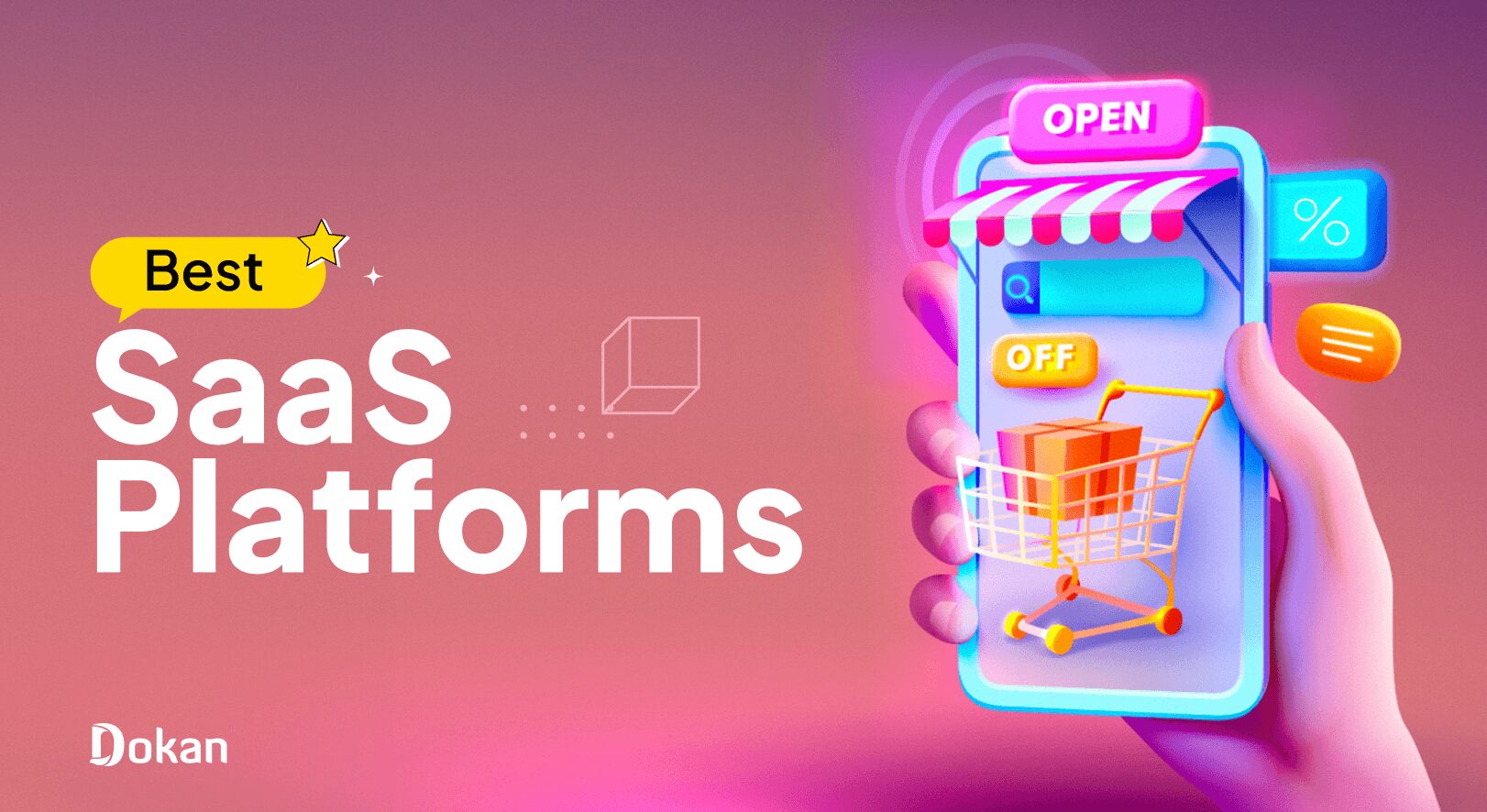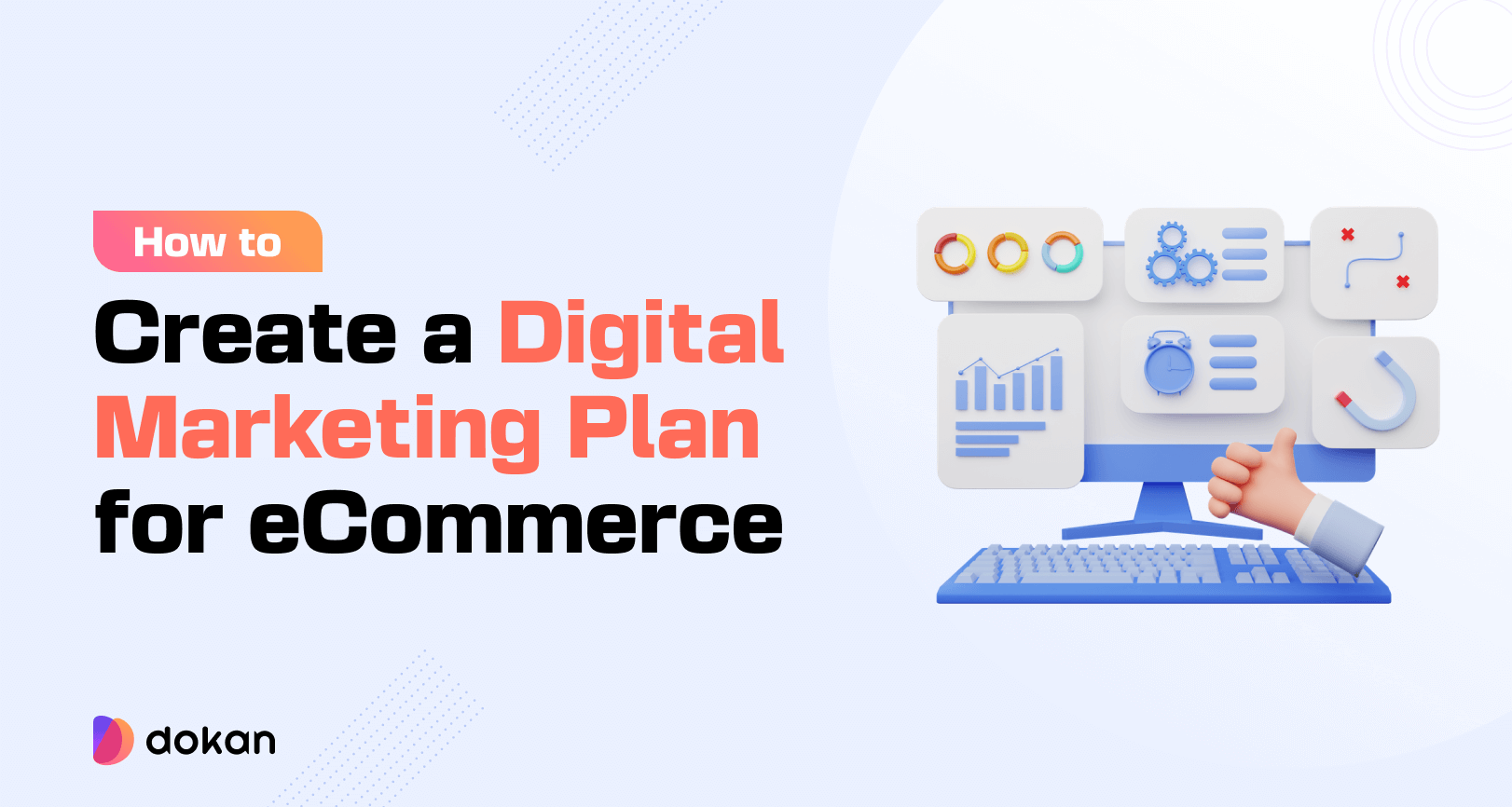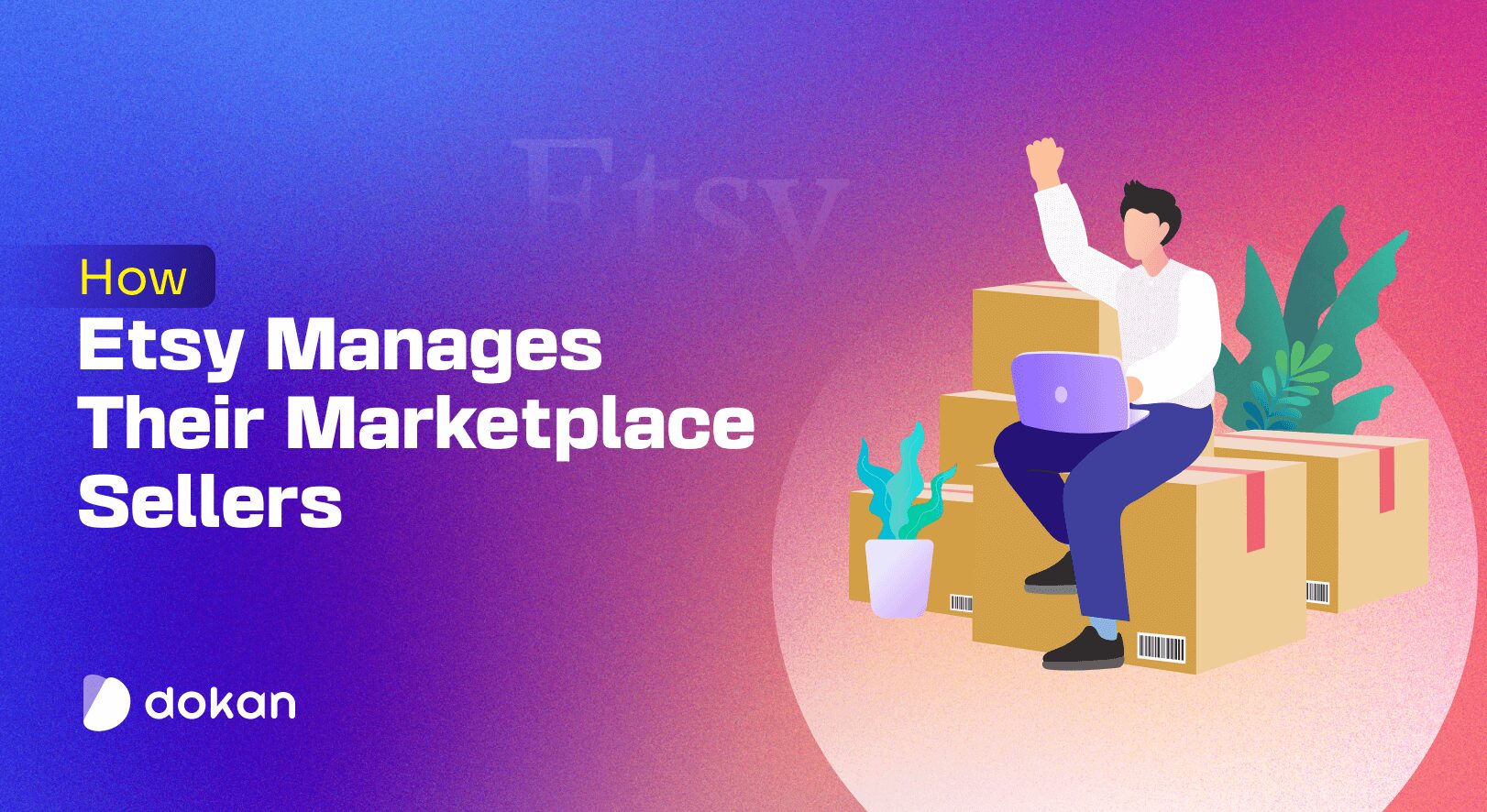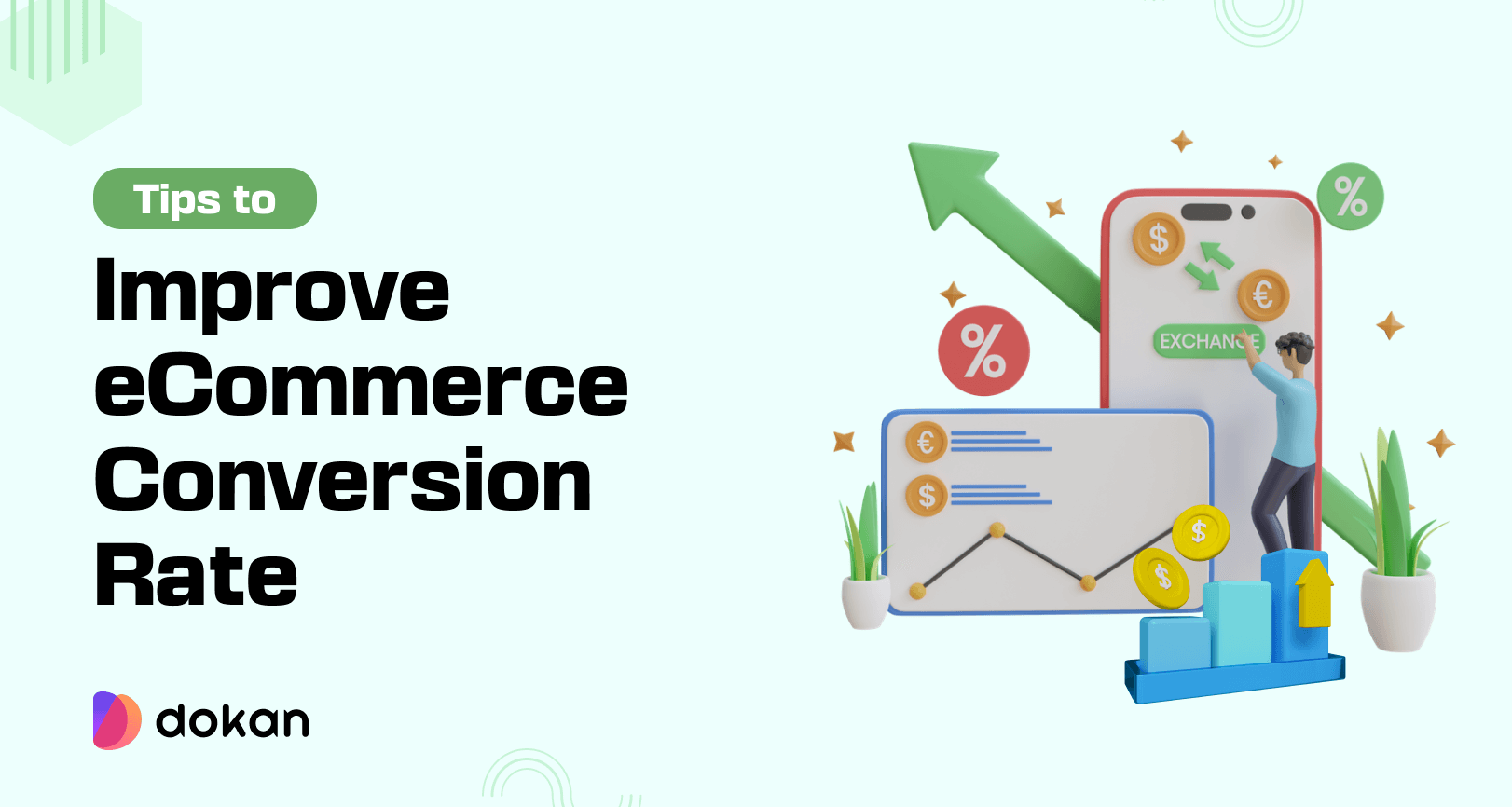eCommerce business is buzzing like never before with more people shopping online than ever. Here is an eye-opening stat for you-
By 2025, eCommerce sales are expected to reach a staggering 5.4 trillion dollars.
Yep, that’s a T with 12 zeroes. So, if you’re dreaming of carving out your slice of that sweet pie, choosing the right platform is crucial.
But forget the tired, old-fashioned storefronts. We’re talking sleek, cloud-based SaaS platforms that make selling online easier than you can imagine. These platforms offer drag-and-drop editors and powerful features. So, you don’t need to worry about coding.
But with so many options out there, how do you choose the perfect one?
Don’t worry, we’ve got you covered. We’ve researched the market and handpicked the top 10 SaaS platforms for eCommerce businesses in 2024, each with its unique flavor to satisfy your entrepreneurial needs.
So, buckle up and dive into the best SaaS platforms. Let’s go!
What is a SaaS Platform and How It Works
A SaaS platform for eCommerce business is like renting a fully furnished shop instead of building one from scratch. SaaS stands for “Software as a Service.” It means you’re not buying software outright, but instead, you’re subscribing to it and accessing it over the internet.
Here’s how it works:
- Subscription: Instead of purchasing software, you pay a regular fee, usually monthly or annually, to use the eCommerce platform. This fee covers things like hosting, security, updates, and support.
- Ready-to-Use: The platform comes pre-built with all the tools and features you need to set up and run an online store. You don’t have to worry about coding or designing everything from the ground up.
- Customization: While the platform provides pre-made templates and features, you can still customize your store to match your brand and business needs. This might include changing colors, fonts, layouts, and adding or removing features.
- Hosting: The platform hosts your website and handles all the technical stuff like server management, security, and performance optimization. This saves you the hassle of dealing with these things yourself.
- Updates and Maintenance: The platform provider takes care of software updates, bug fixes, and maintenance tasks. You don’t have to worry about keeping your eCommerce site up-to-date or dealing with technical issues.
- Scalability: SaaS platforms are designed to scale with your business. Whether you’re just starting out or experiencing rapid growth, the platform can accommodate your needs without requiring you to switch to a different solution.
- Support: Most SaaS platforms offer customer support to help you troubleshoot issues and get the most out of the platform. This might include live chat, email support, help articles, and community forums.
So, this is how a SaaS platform works. Now let’s move on to the next segment- Best SaaS Platforms in 2024!
10 Best SaaS Platforms for eCommerce Businesses in 2024
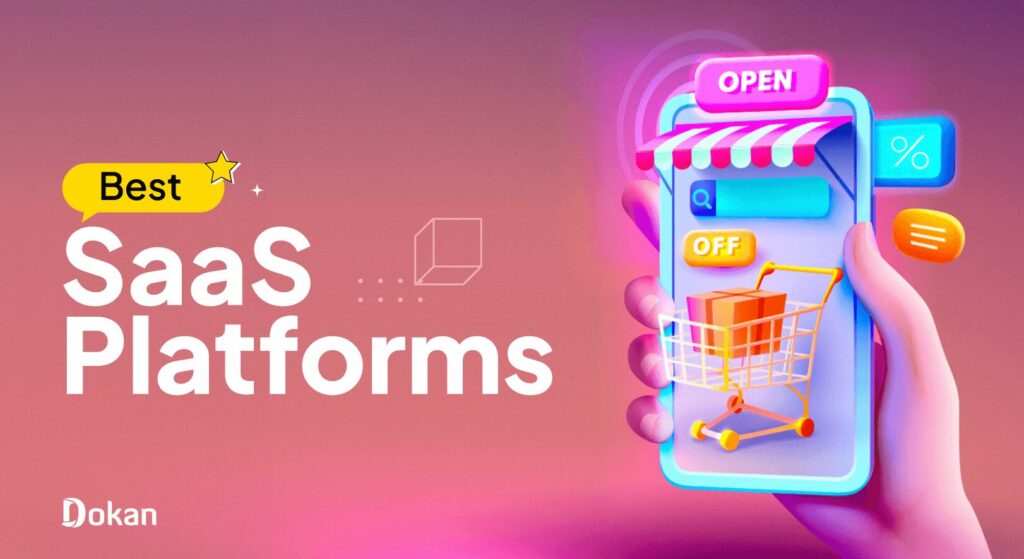
As you know there are several SaaS platforms available for eCommerce businesses. Almost all of them are promising. So, choosing the best 10 SaaS solutions out of so many options is difficult. However, we have tried our best to make this list unbiased and helpful for our readers.
We prepared this list based on the user base, user ratings, features, user-friendliness, design flexibility, and price. Hopefully, you’ll this list will come in handy for you to finalize the best SaaS platform to launch your online business.
First, let’s check the list!
- Shopify
- Dokan Cloud
- BigCommerce
- Wix
- Adobe Commerce (Magento)
- Volusion
- Shift4Shop
- Squarespace
- BigCartel
- Square
Now let’s check every SaaS platform carefully and pick the most-suited solution for your eCommerce business!
1. Shopify
Shopify is one of the most popular and widely used SaaS eCommerce platforms, catering to businesses of all sizes, from startups to enterprise-level companies.
It offers a user-friendly interface, robust features, and extensive customization options, making it a top choice for online retailers worldwide. With Shopify, you can easily set up and manage your online store, sell products across multiple channels, and scale your business as it grows.

Key Benefits of Shopify
- Hundreds of professional templates
- Drag-and-drop store builder
- Payment processing and shipping integrations
- Abandoned cart recovery
- Marketing tools like email and SMS services
- Inventory management
- Detailed analytics and reporting
Cons of Shopify
- Additional fees apply for each transaction beyond the basic plan
- Design flexibility might be restricted compared to self-hosted platforms.
Pricing Package
- Basic Plan for $24
- Professional Plan for $69
- Advanced Plan for $299
2. Dokan Cloud
If you haven’t heard the name of the Dokan Cloud eCommerce platform yet, don’t blame yourself, because it’s a brand new SaaS platform for creating any type of online multivendor marketplace. The main difference between the Dokan Cloud and other eCommerce SaaS platforms in this list is that Dokan Cloud lets you create multivendor marketplaces, e.g., eBay.
Though it’s a new SaaS platform, to be honest, the WordPress plugin version of this eCommerce solution has already been there for a long time. Regardless, the Dokan plugin is the first full-fledged multivendor solution and the most popular one in this category with more than 60,000 installations.
Now Dokan has come as a SaaS version. Hopefully, like the plugin version, the SaaS version will dominate the eCommerce industry as well.
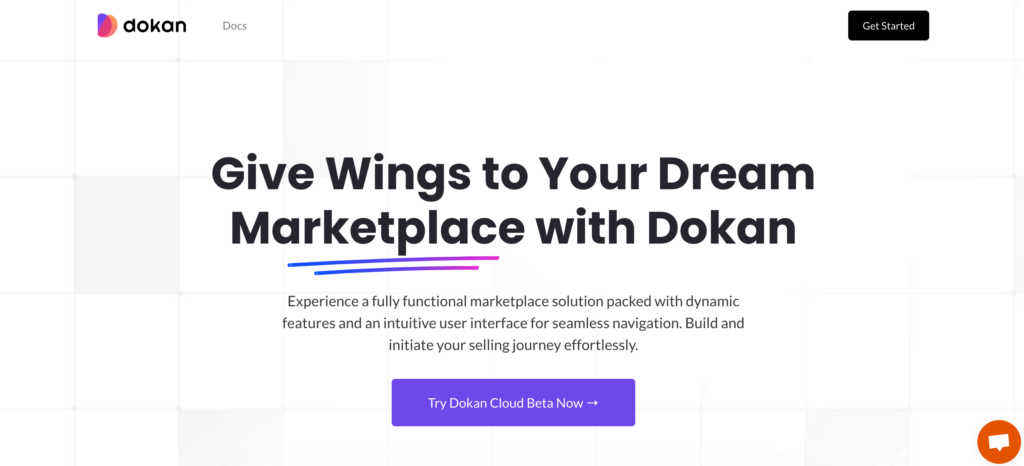
Key Benefits of Dokan Cloud
- Intuitive and easy-to-use interface
- Multivendor marketplace support
- Easy vendor management
- Out-of-the-box reporting system
- Automatic tax calculation
- Marketplace and store SEO
- Easy subscription management
- Integration with all popular payment gateways
Cons of Dokan Cloud
- Since it’s a brand-new platform, a limited number of premade templates are available
- Still, it doesn’t allow you to create single eCommerce stores, you can only create multivendor marketplaces using Dokan Cloud
Pricing Package
Currently, there is only the Dokan Cloud Beta version available. The premium package is yet to launch.
3. BigCommerce
BigCommerce is a leading open SaaS platform catering to mid-market and enterprise businesses. It combines the advantages of SaaS with customization flexibility through open APIs. This allows businesses to integrate seamlessly with external applications and tailor their online store to unique needs.
BigCommerce offers robust features for managing products, marketing, payments, and shipping, making it a powerful solution for scaling businesses.
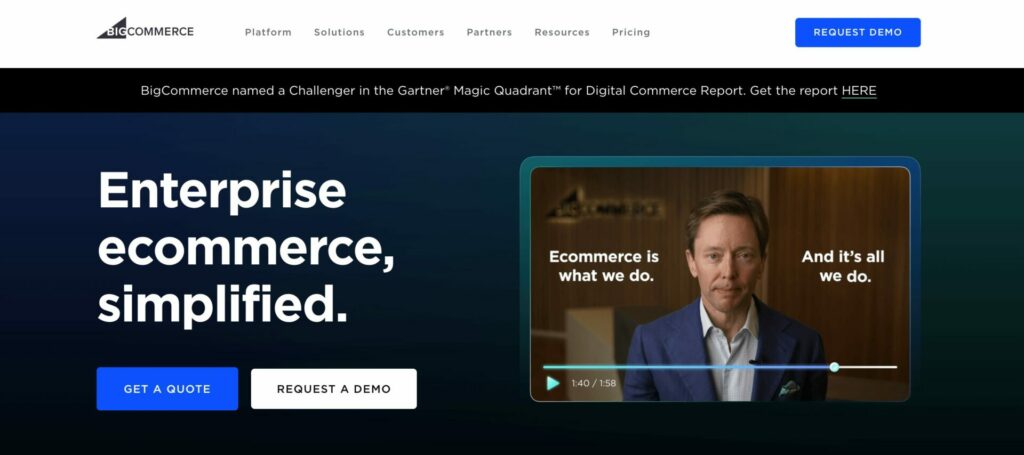
Key Benefits of BigCommerce
- Flexible and scalable platform
- Extensive built-in features for selling online
- Seamless integration with leading third-party applications
- Advanced marketing and SEO capabilities
- Dedicated support and resources for merchants
Cons of BigCommerce
- Can be more expensive than other SaaS platforms
- Setting up and managing advanced features might require some technical expertise
Pricing Package
- Standard Plan for $39 per month
- Plus Plan for $105 per month
- Pro Plan for $399 per month
- Also, there is a custom pricing package
4. Wix
Wix is a versatile SaaS platform known for its user-friendly website-building tools and extensive customization options. With Wix, businesses can easily create stunning online stores with drag-and-drop functionality and a wide range of professionally designed templates.
The platform offers integrated eCommerce features, such as product management, inventory tracking, and secure checkout, making it a popular choice for entrepreneurs and small businesses looking to establish an online presence quickly and affordably.
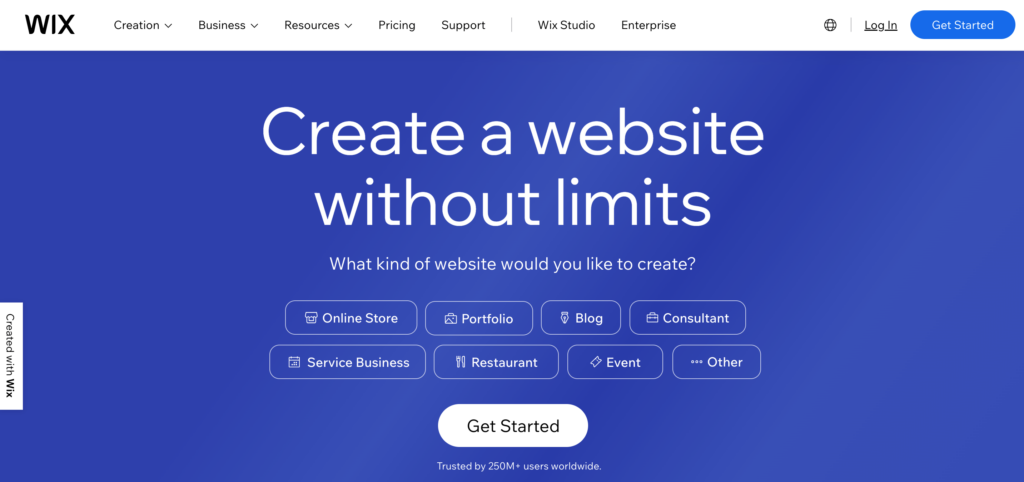
Key Benefits of Wix
- Free secure hosting
- Mobile optimized templates
- Shipping rate management
- Multiple payment gateway options
- Marketing tools like email newsletters
- SEO optimization
- Hundreds of apps add advanced functions
Cons of Wix
- Might not be suitable for high-volume businesses due to potential performance limitations
- Doesn’t support merchants selling products in bulk/wholesale..
Pricing Package
- Business VIP plan for $35 per month
- Business Unlimited plan for $25 per month
- Business Basic plan for $17 per month
5. Adobe Commerce (Magento)
Formerly known as Magento, Adobe Commerce is a powerful, self-hosted eCommerce platform geared towards large enterprises and businesses requiring extensive customization and scalability. It offers a robust feature set for managing complex product catalogs, marketing campaigns, customer relationships, and fulfillment operations.
Adobe Commerce emphasizes security, performance, and flexibility, making it suitable for high-volume businesses with unique needs.

Key Benefits of Adobe Commerce
- Pre-built integrations with Adobe software.
- Offers thousands of extensions in its marketplace, ranging from $0 to $15,000.
- Supports Progressive Web Applications (PWAs).
- Advanced marketing and analytics tools for driving sales and optimizing performance
- Comprehensive support and resources from the Magento community and Adobe ecosystem
Cons of Adobe Commerce
- Lacks automatic feature and version updates
- Has an extremely extensive setup, which can lead to high costs in completing the process
Pricing Package
Pricing for Adobe Commerce Cloud starts at around $40,000.
6. Volusion
Volusion claims itself as an “all-in-one” eCommerce solution built with small to medium businesses in mind. The user-friendly interface requires no coding to set up an SEO-optimized online store.
It provides tools for building online stores, managing products, processing payments, and fulfilling orders. Volusion emphasizes ease of use, built-in features, and marketing tools to help businesses launch and grow their online business.
Key Benefits of Volusion
- Customizable design and templates
- Integrated payment processing
- Automated tax and shipping calculations
- Accounting integration
- Inventory and order management
- Abandoned cart emails
- POS capabilities
Cons of Volusion
- Additional fees apply for each transaction beyond the basic plan
- Limited scalability compared to some other platforms, with potential performance issues as stores grow in size and complexity
Pricing Package
- Personal plan for $35 per month
- Professional plan for $79 per month
- Business plan for $299 per month
7. Shift4Shop
Shift4Shop (formerly 3dcart) is a user-friendly, all-in-one SaaS platform designed for businesses of all sizes. It offers a comprehensive suite of features for building online stores, managing products, processing payments, and fulfilling orders.
Shift4Shop emphasizes security, scalability, and marketing tools to help businesses establish and grow their online presence.

Key Benefits of Shift4Shop
- No limits on products, bandwidth, or storage
- Free branded storefront
- Integrated payment processing
- Automated shipping rate calculator
- SEO and marketing tools built-in
- Inventory management and accounting integration
- Hundreds of apps and integrations are available
- No transaction fees
Cons of Shift4Shop
- The free version of the store is available only for US customers
- Cannot process high-risk transactions
Pricing Package
- Startup plan – $19/month
- Standard plan – $29/month
- Plus plan – $79/month
8. Squarespace
Squarespace is a popular website builder with an integrated eCommerce platform, making it an attractive option for entrepreneurs, especially those new to the online selling world. It offers intuitive website-building tools and elegant design templates, making it easy for businesses to create stunning online stores.
Squarespace is known for its user-friendly interface and visually appealing designs, it provides a seamless experience for both merchants and customers. With built-in eCommerce features and flexible customization options, Squarespace caters to a wide range of businesses, from small startups to established brands.
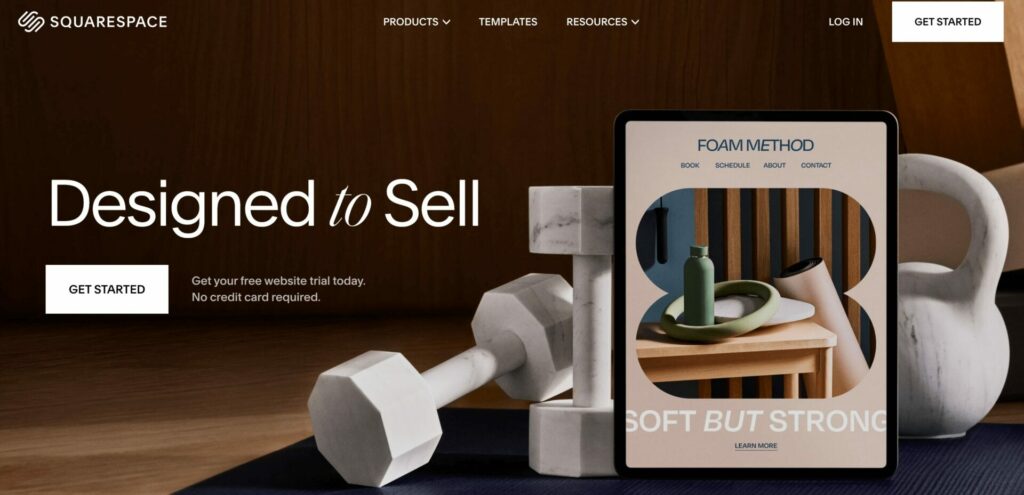
Key Benefits of Squarespace
- Intuitive drag-and-drop website builder for easy customization
- Beautifully designed templates optimized for mobile responsiveness
- Integrated eCommerce functionality with support for product listings, inventory management, and secure checkout
- Built-in marketing tools and SEO features to help drive traffic and increase sales
- Reliable hosting and customer support for peace of mind
Cons of Squarespace
- Limited scalability for businesses with complex eCommerce needs or high sales volumes
- Fewer third-party integrations are available
Pricing Package
- Personal plan for $25 per month
- Business plan for $36 per month
- Basic Commerce plan for $40 per month
- Advance Commerce Plan for $72 per month
9. BigCartel
While not as widely known as some other eCommerce platforms, BigCartel caters to a specific niche: creative individuals and small businesses selling handmade or artistic products. It offers a simple and user-friendly interface for setting up an online store, and it includes features such as inventory management, order tracking, and product customization.
Overall, BigCartel is a good choice for creative entrepreneurs starting out or selling a limited number of unique products. However, its limitations in features and scalability make it less suitable for businesses with complex needs or high-growth aspirations.
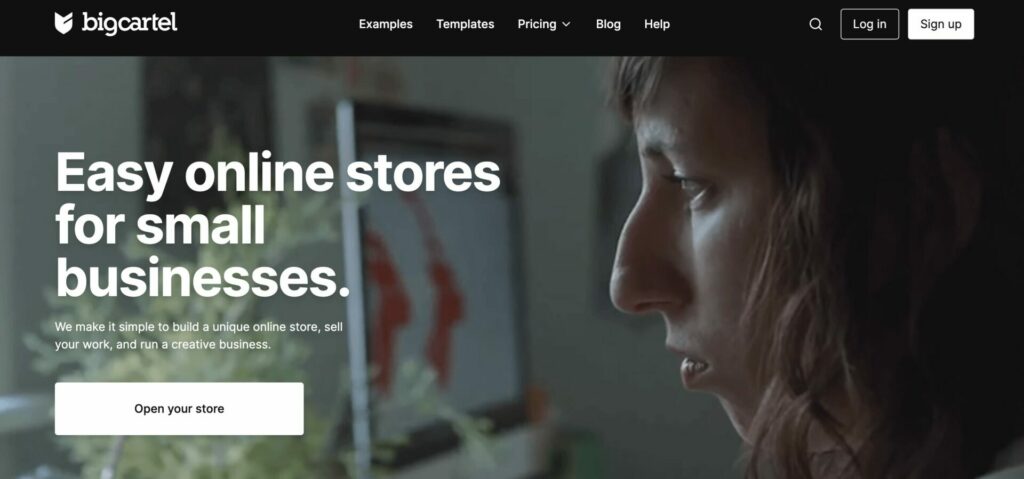
Key Benefits of BigCartel
- Easy-to-use interface for quick store setup and management
- Designed for artists and small businesses with limited product offerings
- Customizable storefronts with basic design options to match brand aesthetics
- Support for digital products, physical goods, and services
- Affordable pricing plans with no transaction fees, making it ideal for startups and small-scale sellers
Cons of BigCartel
- Limited scalability for businesses with expanding product lines or growing sales volumes
Pricing Package
- Free plan with 5 products and basic features
- Platinum plan for $9.99 per month with 50 products and more features
- Diamond plan for $19.99 per month with 500 products and even more features
10. Square (Weebly)
Square, known for its point-of-sale systems, has branched out into the eCommerce world with Square eCommerce (formerly Weebly). This platform caters to businesses seeking an easy-to-use solution to complement their existing brick-and-mortar presence or create a new online store quickly.
Overall, Square eCommerce is a good option for existing Square users, brick-and-mortar businesses looking for a simple online presence, or entrepreneurs starting small. However, its limitations in customization and scalability make it less suitable for businesses with complex needs or high-growth aspirations.
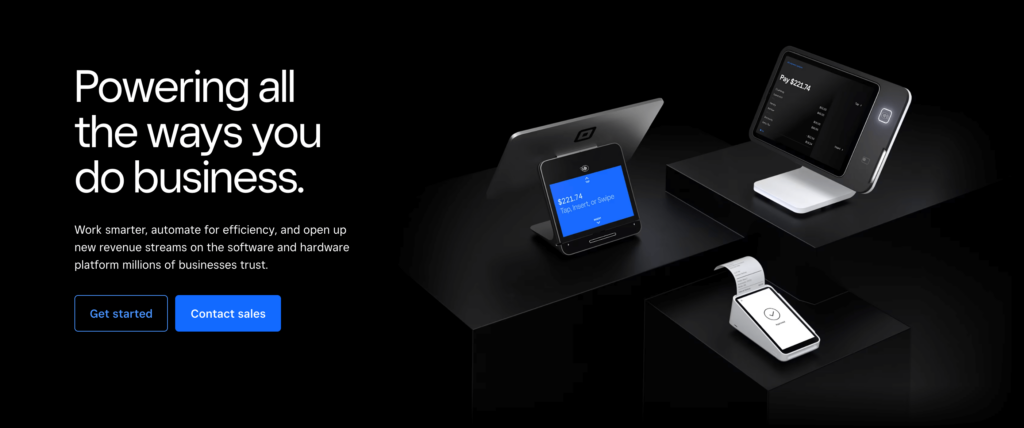
Key Benefits of Square
- Easy syncing of online and in-person inventory
- Centralized reports for online/offline sales
- Integrated payments processing
- Automatic categorization of sales data
- Email invoicing
- Flexible order fulfillment options
Cons of Square
- Features are often plan-dependent, limited lower-priced accounts
- Limited customization and design options
Pricing Package
- Basic plan – Free
- Standard plan – $26/month
- Advanced plan – $60/month
Also Read: SaaS vs Open Source eCommerce: Get Everything You Should Care About
Bonus: What to Consider While Choosing the Best SaaS Platform for Your eCommerce Business
Choosing the right SaaS platform for your online business is like picking the perfect outfit – it needs to fit you well and help you achieve your goals.
Here are some key things to consider:
1. Your Business Needs:
- What are you selling? Physical products, digital downloads, or services? Different platforms cater to different types of goods.
- How big is your business? Are you just starting out or do you have a large inventory and established customer base? Choose a platform that can scale with you.
- What features are important to you? Do you need things like marketing tools, abandoned cart recovery, or advanced shipping options? Make sure the platform offers the features you need.
2. Ease of Use:
- How comfortable are you with technology? Some platforms are drag-and-drop simple, while others require more technical know-how.
- How much time do you have to manage your store? Choose a platform that is intuitive and easy to learn, so you can spend more time focusing on your business.
3. Cost:
- What is your budget? SaaS platforms typically have monthly fees that vary depending on features and store size. Compare pricing plans and look for free trials to test them out.
- Are there any hidden costs? Some platforms charge transaction fees or for additional features. Be sure to factor in all the costs before making a decision.
4. Design and Customization:
- Do you want a unique and branded store? Look for platforms that offer a variety of themes and customization options.
- Is mobile responsiveness important? Make sure your chosen platform creates stores that look good and function well on all devices.
5. Security and Reliability:
- How important is data security for your business? Choose a platform with robust security features to protect your customer information.
- Does the platform have a good uptime record? You want a platform that is reliable and won’t experience frequent outages.
Bonus Tip:
- Read reviews and comparisons of different platforms to see what other businesses are using and what their experiences have been.
By carefully considering these factors, you can choose a SaaS platform that is the perfect fit for your business and helps you achieve your online success!
Best SaaS Platforms – Our Verdict
Unfortunately, there’s no single “perfect” SaaS platform for everyone. The “best” choice depends heavily on your specific needs, budget, and technical skills.
Here’s a breakdown of some popular options and who they might be suitable for:
For Beginners
- Dokan Cloud: Comes with an intuitive user interface. There is little to no learning curve, so, if you haven’t used a SaaS platform before, it won’t be a problem. Also, it’s second to none in terms of creating multivendor marketplaces.
- Shopify: Easy to use, drag-and-drop interface, vast app store, good for basic needs. However, transaction fees and limited customization might be drawbacks.
For Growing Businesses
- BigCommerce: Powerful platform, scalable, good for handling high-volume sales, open API for integrations. Requires some technical knowledge and can be more expensive.
For Niche or Creative Businesses
- BigCartel: Simple, affordable, and focuses on showcasing unique products like art or crafts. Limited features and scalability might not suit larger businesses.
For Enterprise-Level Businesses
- Adobe Commerce (Magento): Highly customizable, powerful, handles complex needs and large product catalogs. Requires significant technical expertise and investment.
That’s all from our end. Now it’s your turn.
Tell us which platform you are going to use and why using the comment box below. We would love to know your choices. Thank you!
Subscribe to
Dokan blog
We send weekly newsletters, no spam for sure!

